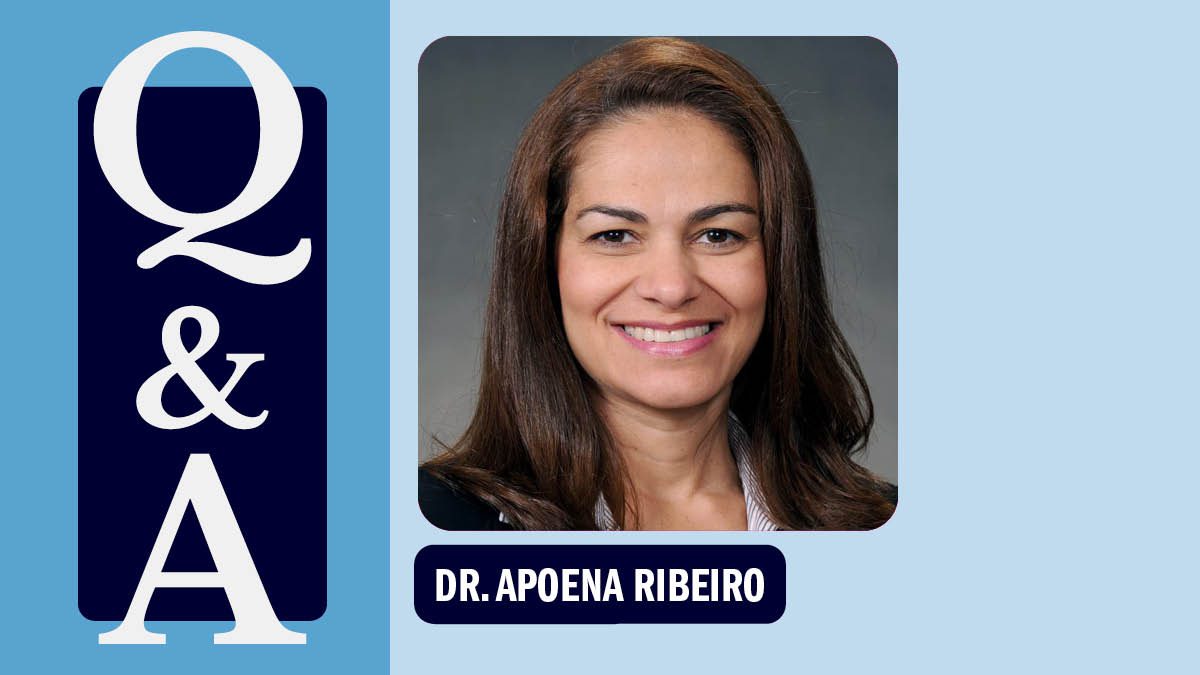’Tis the season to care for teeth
A dental school expert offers three tips to prevent cavities, gum disease and related health risks.

During this most wonderful time of the year, you’ll likely enjoy more food and drink. That extra consumption may increase the chances of damaging your teeth, gums and body, too. How can you protect your dental health during food-filled days and later-than-usual nights of celebration?
Dr. Apoena Ribeiro, research associate professor in the UNC Adams School of Dentistry and an expert on microbiology and the study of tooth decay, offers these tips.
1. Enjoy treats but remember how they might affect your teeth.
We are talking about prevention or not increasing the risk of the world’s most prevalent chronic disease — dental caries or tooth decay. The World Health Organization’s latest data show that oral diseases affect 3.5 billion people — 70% of the world’s population. And, in the last 10 years, dental caries have increased almost 15%.
Tooth decay is based mostly on your daily habits. One big dinner or party won’t give you tooth decay, but the holidays are a time of increased consumption of foods loaded with sugars and of alcohol or carbonated drinks. The pH of most soft drinks and flavored carbonated waters is around 3. That’s acidic. Every time your mouth’s pH drops from the normal pH of 6.8 to 5.5, your tooth enamel starts dissolving. After you’ve had a hot cocoa, Coca-Cola or beer, it will take 30 to 40 minutes for your saliva to neutralize the acids. Take another sip and you increase the acid as it covers your teeth. It’s a cycle of mineral loss, leading to the development of initial lesions that, if not treated, will become cavities.
Also, alcohol consumption decreases your hydration, so your salivary flow lessens. Saliva is important because it washes out remaining food and loose bacteria and helps normalize your mouth’s pH. After brushing, especially at night, keep a glass of water beside your bed to stay hydrated.
2. Brush before sleeping.
Staying up later then going to bed without brushing is a problem. We see this in our students during exams. They’re sleep-deprived and may not brush or floss regularly. For some, their gums begin to bleed. Bacteria become present in the buildup of plaque, that sticky film on teeth and gums. The bacteria irritate the gingiva, or gum tissue, at the base of your teeth. That inflammation is gingivitis.
Always brush before going to bed with a fluoridated toothpaste to help the tooth enamel gain minerals that were lost during the time your mouth was acidic. Brushing then also helps because, when you’re sleeping, you are not producing saliva. What’s left in your mouth is going to stick to it and decrease the pH while you sleep. It also promotes dental plaque build-up.
Enjoy the parties, the drink and food, but don’t turn going to bed without brushing into a habit. Whenever it’s a habit, you have a bad outcome.
3. Be aware of connections between your oral health and systemic diseases.
Tooth decay and gum disease are linked to systemic diseases. For example, diabetes increases the risk of having gingival inflammation, which increases your risk of developing periodontal disease. Also, some medications reduce your salivary flow, which increases the risk of tooth decay. Gum disease increases your risk of having cardiac and pulmonary diseases. And recent studies indicate that patients with periodontal disease-associated bacteria are at higher risk of Alzheimer’s. Once they develop the disease, it progresses much faster.
What stays in the mouth doesn’t stay in the mouth. It is all linked and important.







